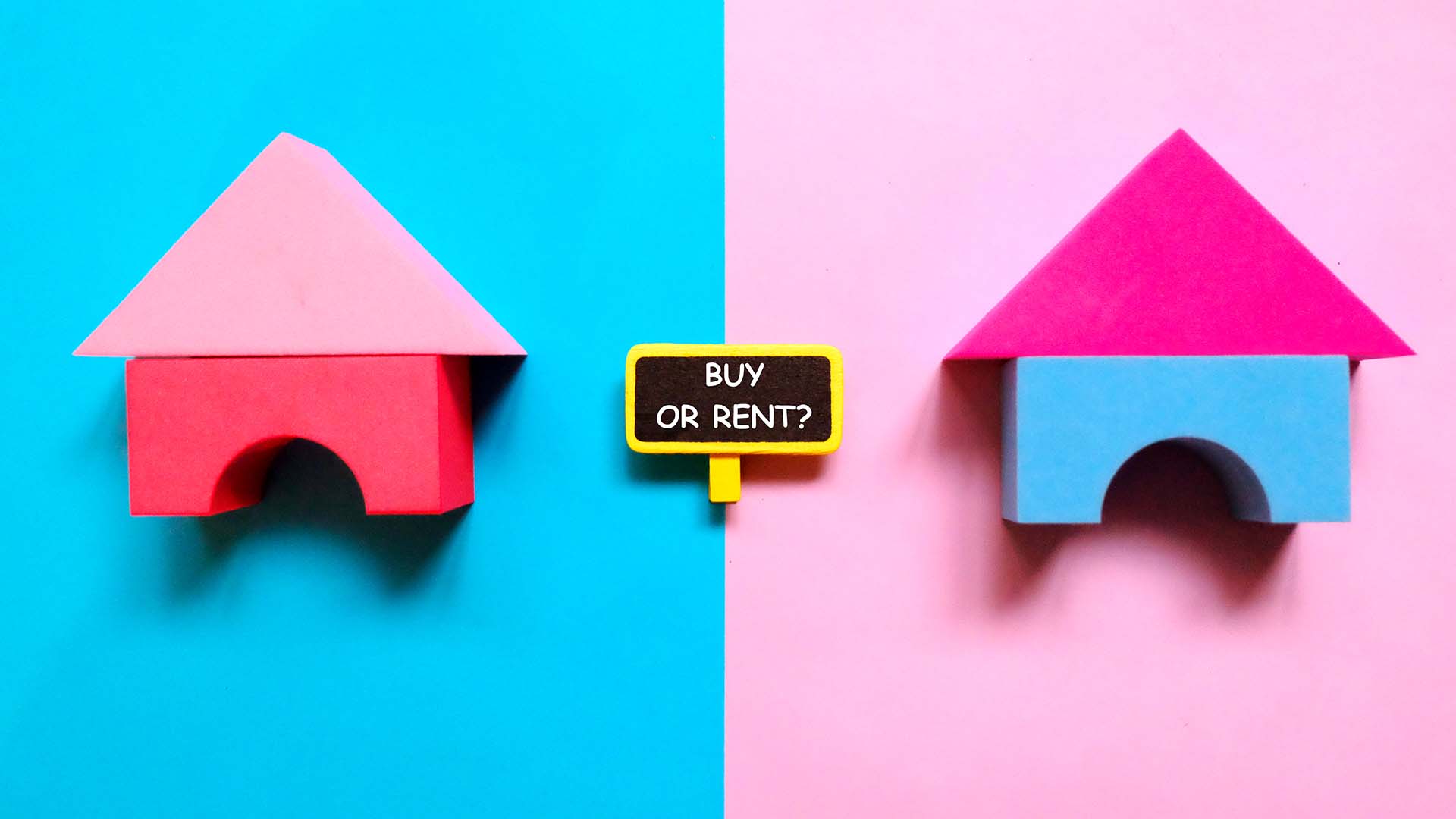It’s cheaper to rent than to buy a home. Here’s advice for those weighing options
A finance expert explains rising homebuying costs and when renters should consider pulling the trigger on a purchase.

Recent reports from Realtor.com and real-estate data provider Attom have found it’s currently cheaper to rent than to own across the top 50 U.S. metro areas. Nationally, a mortgage payment costs $1,027 more than a monthly rent payment.
In Denver, the median rent is $1,911 and the monthly buying cost is $3,223, according to Realtor.com’s February rental report. That means buyers would pay 68.7% more than renters.
A mix of factors is at play, with the biggest culprit being high interest rates, said Jeff Peshut, J.D., assistant professor of Finance and director of the Real Estate program in Metropolitan State University of Denver’s College of Business.
Peshut explains why it’s currently more expensive to buy than to rent across the nation and other factors at play in Colorado.
Do you agree with the reports’ findings? What’s contributing to the rise in homebuying costs?
I agree with the findings, with a few caveats. The first thing I’d like to emphasize is that we’re talking about starter homes as opposed to larger homes. Second, we’re talking about this point in time. As we look at the information, we need to keep both of those things in mind because the dynamics may be very different for higher-priced homes.
The supply is greater than demand in the rental market, and demand is greater than supply in the starter-home market right now. A lot of millennials — now the largest generation — are at the stage where they’ve gotten married, are forming families and are wanting to buy houses all at the same time.
On the supply side, higher interest rates may in fact be restricting the supply of starter homes available to first-time buyers. Homeowners who landed low interest rates back in 2021 with starter homes are now locked in and can’t move up to larger homes due to high interest rates. It’s what commentators call “golden handcuffs.” They’re taking up a lot of the starter-home supply for first-time homebuyers.
Are there factors that make Colorado especially expensive for homebuyers?
Yes, something that isn’t often talked about is the intensity in land-use and zoning regulations. I looked at some numbers recently and found that the supply and cost of new homes is directly related to the extent and intensity of local land-use and zoning regulations.
Here are three examples:
Boulder has some of the most extensive and intensive land-use regulations and zoning restrictions in the country. The average home value in Boulder is $960,000.
When it comes to land-use regulations and zoning restrictions, Denver is in the middle of the pack nationally. In Denver, the average home value is $550,000.
Houston, the fourth-largest city by population in the country, has never had a zoning code in its entire existence. The average home value in Houston is $260,000. The supply of new homes is much more available in Houston, notwithstanding strong demand to live there.
Ultimately, land-use and zoning regulations restrict the supply of developable land, which increases the cost.
The monthly cost of buying reported by Realtor.com does not factor in tax advantages of owning a home. Should prospective buyers consider them?
Yes. Income tax benefits – the deduction of discount points, origination fees, interest payments and property taxes – provide a significant financial benefit to homeowners. For example, early in a mortgage loan, most of the monthly payment goes towards interest, so a principal and interest payment of $3,000 per month could result in an interest deduction of $30,000 per year or more. On top of that, the deduction for property taxes could easily be another $5,000 to $10,000, depending upon the value of the home.
How would you recommend people go about deciding whether to buy or rent?
The decision of whether to rent or buy a home should be made based upon current circumstances and future goals, not merely the current price difference between the two options. As with all big-ticket consumer decisions, the first question to ask about your current circumstances is, “What can we afford?” You should also consider the following:
- Have we saved enough for a down payment and closing costs?
- Can we afford the monthly mortgage payment of principal, interest, taxes and insurance?
- How much of a mortgage payment can we afford after we save 20% of our income?
Potential buyers should keep in mind the 50/30/20 rule for their income, which breaks down to 50% for needs, 30% for wants and 20% for savings. Always “pay yourself” (save) first.
If you can’t afford the down payment and closing costs, then the decision is easy: rent. It’s less expensive anyway and will help you save for a down payment later.







